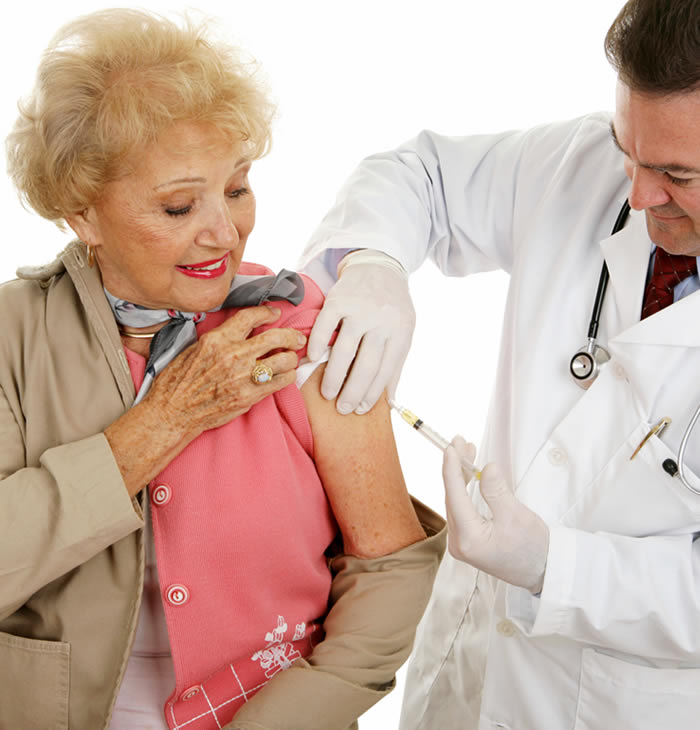According to the CDC, the best way to reduce your risk from seasonal flu and its potentially serious complications is to get vaccinated every year.
If you are at a higher risk of developing serious flu complications, flu vaccination is especially important. High risk populations can include:
- Adults 65 years or older – Read the CDC Recommendations
- Adults with certain chronic health conditions including asthma, heart disease and stroke, diabetes, chronic kidney disease
- People with a weakened immune system due to disease (such as people with HIV or AIDS, or some cancers
- People who live in nursing homes and other long-term care facilities
- Children younger than 5 years old are considered at higher risk of serious flu complications, but the highest risk is for those younger than 2 years old, with the highest hospitalization and death rates among infants younger than 6 months old.
- Pregnancy
2022-2023 Flu Vaccines
The composition of flu vaccines has been updated for the 2022-23 season. These include a higher dose vaccine approved for people 65 years and older, vaccines for ages 18+ that do not use the flu virus or chicken eggs, and a cell culture-based vaccine changed from 2 years and older to 6 months and older. Read the flu vaccine updates for 2022-23.
Read Cold, Flu or Covid?
 Both COVID-19 and flu can have varying degrees of symptoms, ranging from no symptoms (asymptomatic) to severe symptoms. Common symptoms that COVID-19 and flu share include:
Both COVID-19 and flu can have varying degrees of symptoms, ranging from no symptoms (asymptomatic) to severe symptoms. Common symptoms that COVID-19 and flu share include:
- Fever or feeling feverish/having chills
- Cough
- Shortness of breath or difficulty breathing
- Fatigue (tiredness)
- Sore throat
- Runny or stuffy nose
- Muscle pain or body aches
- Headache
- Vomiting
- Diarrhea (more frequent in children with flu, but can occur in any age with COVID-19)
- Change in or loss of taste or smell, although this is more frequent with COVID-19.
You cannot tell the difference between flu and COVID-19 by the symptoms alone because they have some of the same signs and symptoms. Specific testing is needed to tell what the illness is and to confirm a diagnosis. Getting treated early for COVID-19 and flu can reduce your risk of getting very sick.
Influenza is a contagious respiratory illness caused by influenza viruses. Flu signs and symptoms usually come on suddenly. People who are sick with flu often have fever and chills, cough, sore throat, runny hose, body aches, headaches and fatigue.






